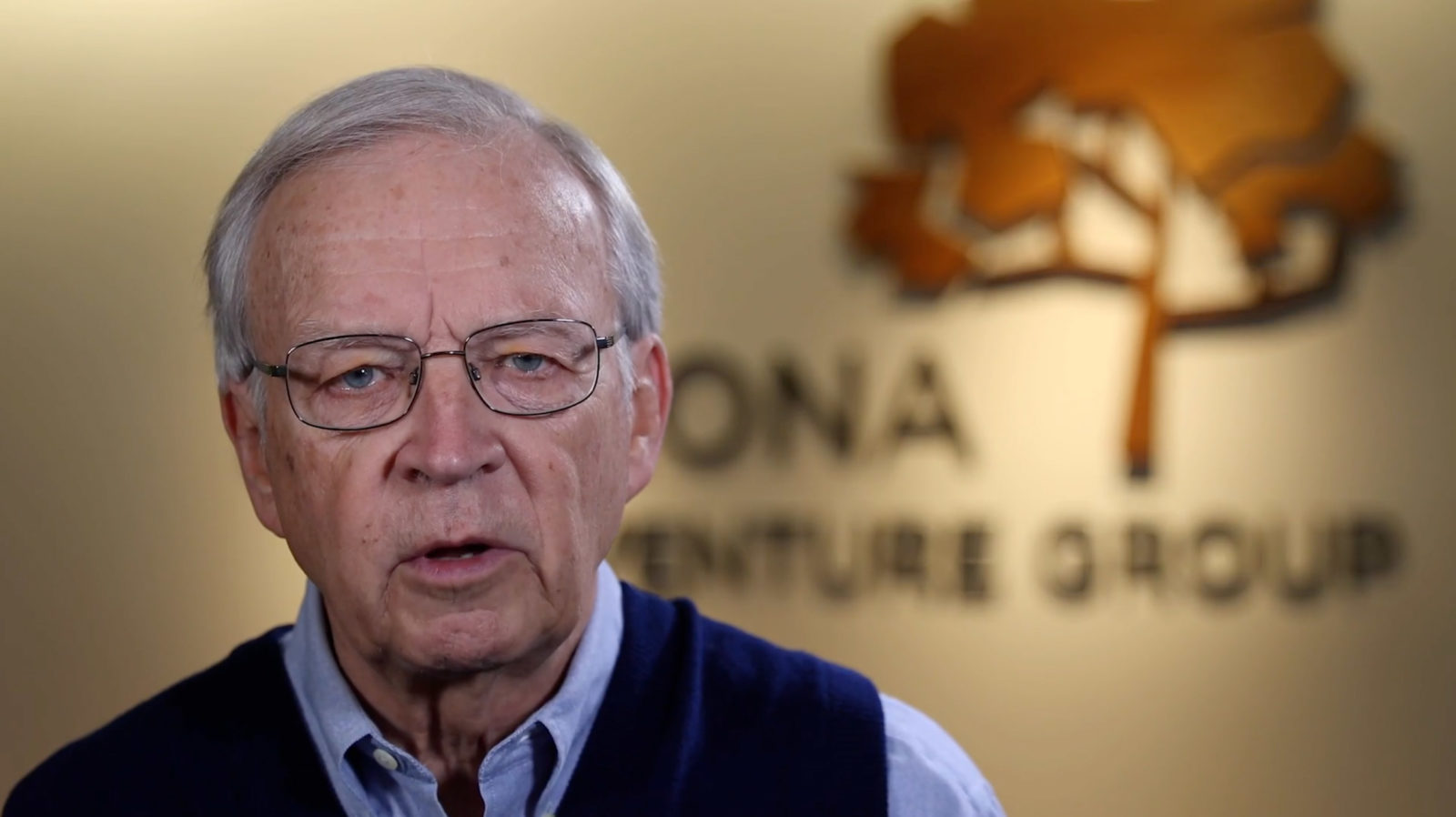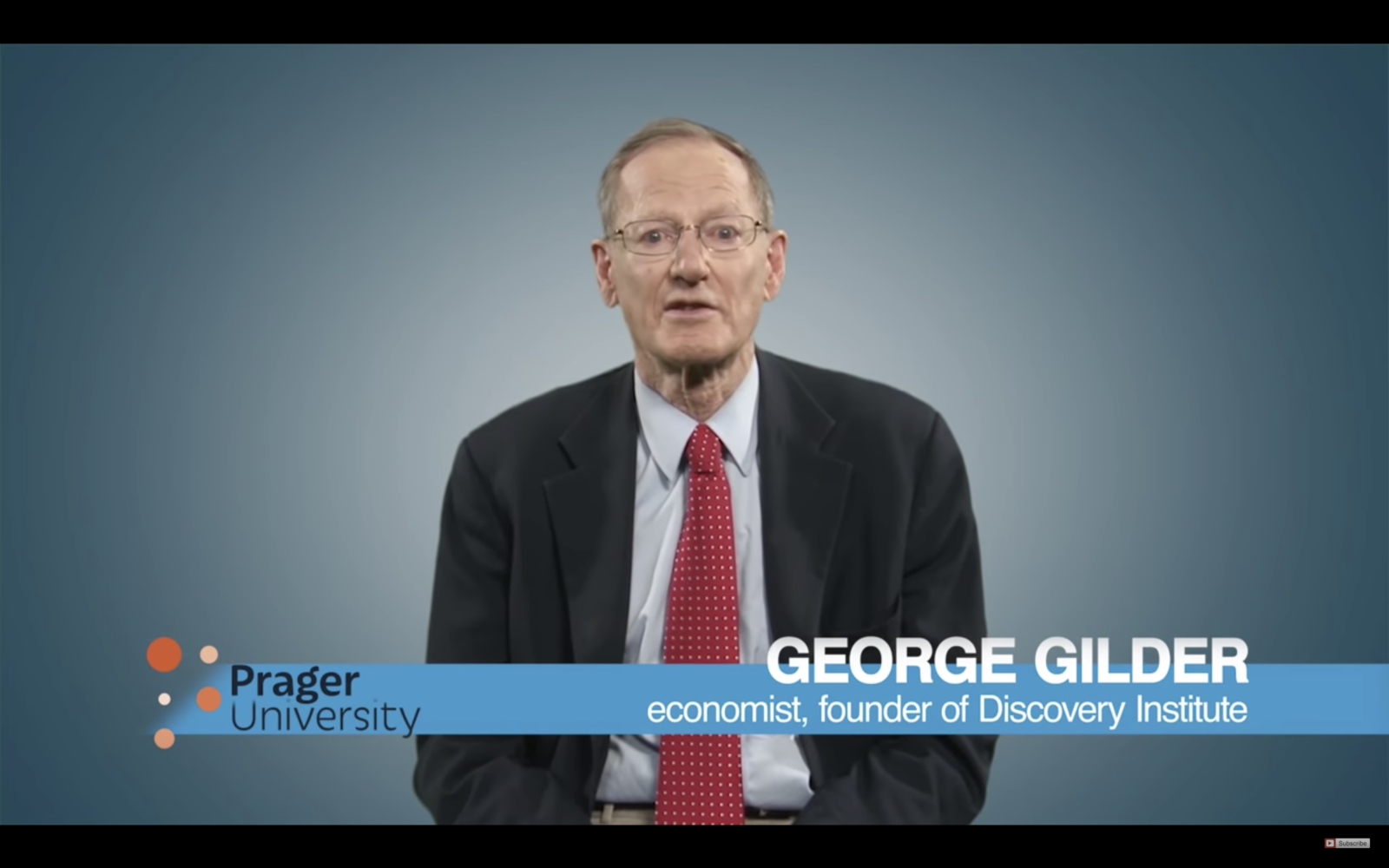


Why In-N-Out Burger Is What Vibrant Conservatism Tastes Like

Discovery Founding Chairman Receives Lifetime Achievement Award From Seattle Business Magazine
Discovery Institute founding board chair Tom Alberg, who served on the board from 1991 to 2004, has been given a lifetime achievement award by Seattle Business Magazine for what they call his “uncanny knack for anticipating tech’s next blockbuster hit.” In addition to his tech senses, he also has a deep understanding of transportation and mobility challenges in the Puget Read More ›

6th Annual Chapman Center for Citizen Leadership Benefit Luncheon

George Gilder for Prager University: What Creates Wealth?
The latest course from Prager University features George Gilder explaining why some countries are wealthy and flourishing, while others are poor and stagnant. This topic has been long debated–with scholars offering explanations based on culture, government, geography, history, and more–but George Gilder looks to the core of the issue, arguing that what matters most for dynamic economic growth is knowledge. Read More ›

George Gilder Is Optimistic That We’re Due For A Surprising Leader
We’re not doomed. At least not according to George Gilder’s challenging and insightful Knowledge and Power.
Plenty of nations have lost their way, and this present distress is not the first time we’ve gotten off course. But according to Gilder, although human beings are wired to receive information, we are currently starved of new ideas because our current ruling class in politics and media is basically just transmitting the same old noise. According to Gilder, when politicians try to match their message to ‘public opinion’ they stultify the political process. The job of leaders is not to reflect back ghostly images of the already spectral enough phantom known as public opinion. The job of leaders is to teach the public something they don’t already know. The third and final installment of our interview with Gilder follows below:
Jerry: “I kind of imagine you speak this signal into the current intellectual milieu and the libertarians say, “Wait, what’s all this stuff about family?” And the sort of nostalgic right say, “Wait, what are all these new jobs from overseas? They’re going to mess up American culture.” I mean, you’re at odds, to some degree, with the sort of religious right nostalgists, “let’s keep everything 9-5”, lunch bucket kind of thing. You’re also at odds with the libertarians who want to redefine family and redefine the traditional moral code—“
George: “Those are fair statements.”
Jerry: “On the other hand, you are, I think, creating a new intellectual structure in which those divergent elements can be reunited, almost reuniting the Reagan coalition on information theory.”
George: “Yeah, I think so. That’s really the purpose of it; it’s to show that both sides are right, it’s to put freedom on a more secure foundation and to put constitutional government and political leadership on a better foundation. I mean, all the heroic inventions of entrepreneurs on the frontiers of science are ultimately dependent on the discipline, moral codes, and leadership by politicians and leaders and ministers and priests, and the whole body of people defending the low-entropy carriers are also indispensable to the high-entropy creators.”
Jerry: “So, we await a new political entrepreneur not to wait for the public to understand this on his own, but to take this message that reunites the Reagan coalition and go out and actively teach it and create a demand for the supply of these answers in the political sphere.”
George: “I think that’s right. And I’m very optimistic. You know, the good thing about a knowledge economy, an economy of mind, is that it can change as quickly as people’s minds can change. In my book, Knowledge and Power, there’s a whole chapter full of examples of countries that have radically transformed their economies in weeks once policies have been changed. From the United States, we’ve reduced government spending 61% in two years after the second world war, with the Republican Congress of 1946. We cut tax rates all over the place through the joint tax return. We dismantled all the regulatory apparatus of the wartime, and much of the new deal. All Keynesian economists thought that the result would be a catastrophe, Paul Samuelson said it would be the worst disruption and disaster and depression in the history of economics. Instead, we launched what’s now looked back on as a golden age of American economic progress.”
Read More ›
Information, the Entrepreneur, and George Gilder’s New Economic Thinking
Is Capitalism Based on Greed – George Gilder author of Knowledge and Power
In this short clip bestselling author and influential thinker George Gilder looks at whether or not Capitalism is based on greed. In his new book Knowledge and Power: The Information Theory of Capitalism and How It Is Revolutionizing Our World, Gilder synthesizes his analysis of technology and economics to build a new theory of capitalism. Read More ›